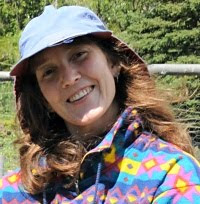From Puzzles to Publication
My path to publication was puzzling. No, really, it was. Literally. A kids’ puzzle book I created for a lodge here in Alaska earned me a scholarship to the Highlights Foundation Writers’ Workshop in Chautauqua. There, I met a children’s magazine editor who wasn’t too keen on my novel manuscript but desperately wanted puzzles. Twelve books and hundreds of puzzles later, here I am, still puzzling, primarily for kids but for grownups, too.
While I enjoy detours off the puzzling path to write other things, I always come back because I love it, and I think puzzles are important.
You’ve probably seen health articles on how puzzles are exercise for the brain and a good way to keep aging brains sharp. Luminosity is a website that provides mental workouts to improve memory and cognition while contributing to brain research with participant results.
Puzzles are effective brain-developers, too. I even think they’re an important alternative path to literacy.
From Puzzles to Literacy
Next to meeting kids’ most basic needs—nutritious food, clean water, shelter, and healthcare—I believe literacy is of utmost importance; it’s the key to a happy, productive, successful, and fulfilling life. There is more than one path to literacy, and that’s a good thing because we all have different interests and abilities. While reading to and with kids may be the expressway to literacy, there are scenic byways that offer fresh views and fun while still getting us there. Puzzles are a scenic byway that shouldn’t be missed.
Puzzles—math, word, logic, you name it—approach words, ideas, and literacy in a roundabout way. They highlight the drama of language, the absurdities, the bizarre, and the fun. Puzzles tease us, make us laugh, challenge us, and surprise us. In short, they entertain us while leading us to our destination: literacy.
Just as a Sunday drive is associated with recreation and relaxation, puzzles are associated with games and play, even though they require reading, understanding, and following instructions. They are short excursions into brain work—they don’t require a huge commitment of time, and the reward comes quickly. As kids attempt more difficult puzzles, they build the stamina that reading books requires.
When kids solve puzzles they learn to play with words. They get comfortable with them and enjoy them. They learn that sometimes words don’t mean what they seem to mean and that sometimes they can mean more than one thing. Discovering the complexity of words introduces kids to their beauty, revealing what’s clever and what’s funny. When kids embrace words as play things, they aren’t intimidated by them.
Like unfamiliar roads, puzzles have an air of mystery. We don’t know where they’re going, but we’re eager to find out. In the process of solving the mystery, kids learn how to think.
Puzzles can help pre- and early-readers develop letter recognition and writing skills and build vocabulary. Solving more advanced puzzles requires critical and creative thinking: developing and using logic, reasoning, fluency, and associative thinking and identifying forced relationships.
The challenges posed by puzzles can encourage us to step back and take a panoramic view of a problem, searching for a new perspective. Learning to try different approaches and to see things from new angles teaches kids flexible thinking and persistence, useful skills as they tackle more difficult words and text.
We all want kids to reach a place where they can read and write effectively. How they get there doesn’t matter. Providing alternate routes entices more kids to find their way.
How do we improve kids’ chances for success and thereby improve the world? By way of literacy. Be sure to include puzzles in your itinerary. Christmas is coming. Puzzle books make great stocking stuffers. I remember getting puzzle books in my stocking; I loved it!
Do you solve puzzles? Do you provide puzzle books for the kids in your life?
Have you ever wrapped a present in a puzzle? No? Stick around. I’ll show you how!
In addition to reading, writing, and puzzling, Jen Funk Weber designs needlework at Funk & Weber Designs. She enjoys hiking, gardening, watching wildlife, baking bread, and pretty much every craft on the planet.





